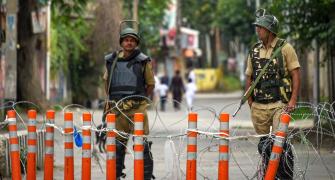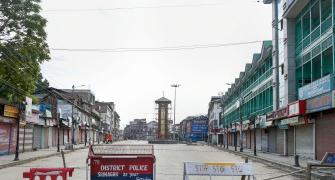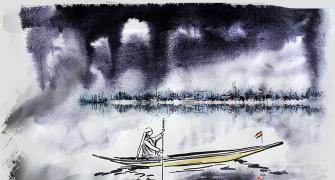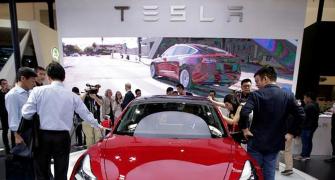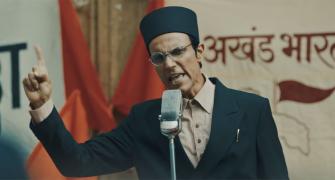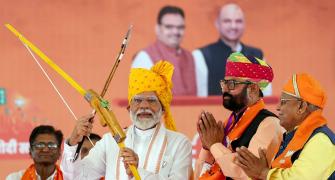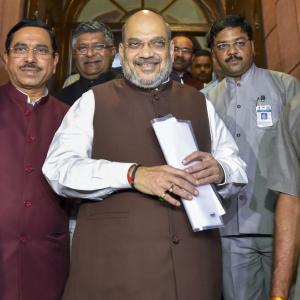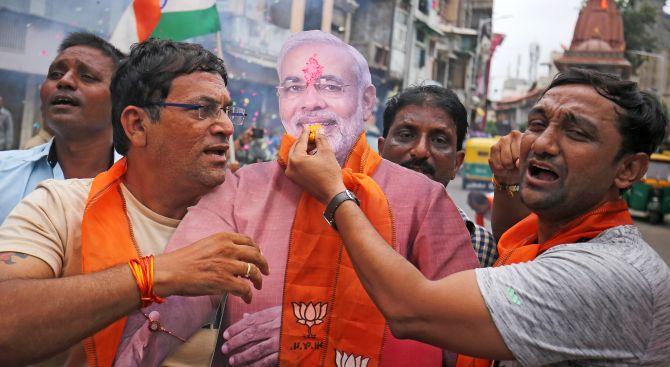Prime Minister Narendra Modi may well succeed, since fortune favours not only the brave but, at times, the reckless as well, observes Shreekant Sambrani.

Prime Minister Narendra Modi had addressed the nation on November 8, 2016. He did so again on August 8, 2019.
The first announced the demonetisation of 86 per cent of currency then in circulation, surely the defining point of Modi 1.0 administration. The latter explained the recently accomplished legislative feat of abrogating Article 370 of the Constitution and splitting of the state of Jammu and Kashmir into two Union territories of Jammu and Kashmir and Ladakh.
This will be equally certainly the defining point of Modi 2.0. These decisions were taken in utmost secrecy, with only a handful being privy to them in advance (in case of the Kashmir, though, they were inklings of something being in the works). The fait accompli needed to be explained for wider acceptance, hence these crucial speeches.
So it should not be a surprise that the two orations, separated by 33 months to the day, followed the same template.
The narration was basic: Problems presently faced are cited, the root cause is identified, its removal as the primary action justified, numerous benefits arising from this act are described, and at the end, almost in passing, a few inconveniences arising out of the administration of the bitter pill are mentioned, with a request and hope for forbearance since these minor irritants are purely temporary.
The delivery is faultless and you are very nearly persuaded to accept what is, in fact, a rather simplistic analysis, disregarding nuances and complications inherent in the ground reality.
Both these decisions were strategically timed. The theory that demonetisation was so scheduled as to deny the oxygen of cash to the Opposition in the Uttar Pradesh election at a critical stage has never died down. But that decision undeniably took laymen, experts and politicians alike by surprise, which ensured its effective implementation.
Even though abrogation of Article 370 was an integral part of the Bharatiya Janata Party agenda right from the inception of its predecessor the Bharatiya Jan Sangh, 2019 was the opportune time for its execution, as Ashok Malik persuasively argues (external link). After 2016, the so-called mainstream politicians in Kashmir and even the Hurriyat had lost all semblance of credibility. And the rest of India experienced 'fatigue with …the familiar cycle of victimhood and violence, blackmail and bluster…Perceptive to this mood, Prime Minister Modi and Home Minister Amit Shah saw their chance.'
Modi's main point that Jammu and Kashmir trailed other states on most development parameters due mainly to Article 370 does not quite bear scrutiny.
According to The Indian Express (external link), the state's performance on metrics such as life expectancy and education for both sexes, households with electricity, clean fuel and safe sources of drinking water, infant mortality and even the poverty ratio was better than the national average.
Unemployment and women owning immovable property were the two main indicators where the state had fallen behind the national average.
But that little matter of detail could well elude most of Modi's audience, especially outside Jammu and Kashmir.
Popular management lore defines the best salesperson as one who sells a refrigerator to an Eskimo. Modi passed that test with flying colours in case of demonetisation.
The people who suffered the most, at least in the short run, by that action -- small traders, artisans, farmers, and ordinary householders who conducted virtually all their economic transactions in cash -- turned out to be steadfast defenders of the notebandi.
They showed their overwhelming support in March 2017 when the BJP was voted to power in Uttar Pradesh with an unprecedented majority. They did so again nationwide by returning the BJP to power with increased numbers in the last general election.
But Modi could find his task in the Kashmir Valley a bit more daunting.
Convincing the local population that the loss of its long-cherished special constitutional status and statehood, along with restrictions on movement and communication howsoever temporary they may be, is all for its good could be likened to trying to persuade people in a live volcano neighbourhood to buy thermal underwear, and not just by his critics alone.
Modi has assiduously sought the enhancement of his and his party's political capital ever since he became part of the establishment in 2001. The 2019 general election increased it vastly.
He has staked it all on the Jammu and Kashmir decision. He may well succeed, since fortune favours not only the brave but, at times, the reckless as well.
But the relevant question is, how is the political capital to be used?
While chronicling Modi's last state election campaign in 2012, I had drawn a parallel between him and Huey Long, the Louisiana governor (later senator) in the Great Depression.
Long enjoyed absolute power in the state through his direct appeal to the people. He had emerged as a challenger to US President Franklin Roosevelt for the Democratic nomination in 1936. He could well have changed American history had he not been assassinated in 1936.
His relentless pursuit of political capital as an end in itself suggests that the thin line between democrats and demagogues is blurred.
Shreekant Sambrani is an economist.


